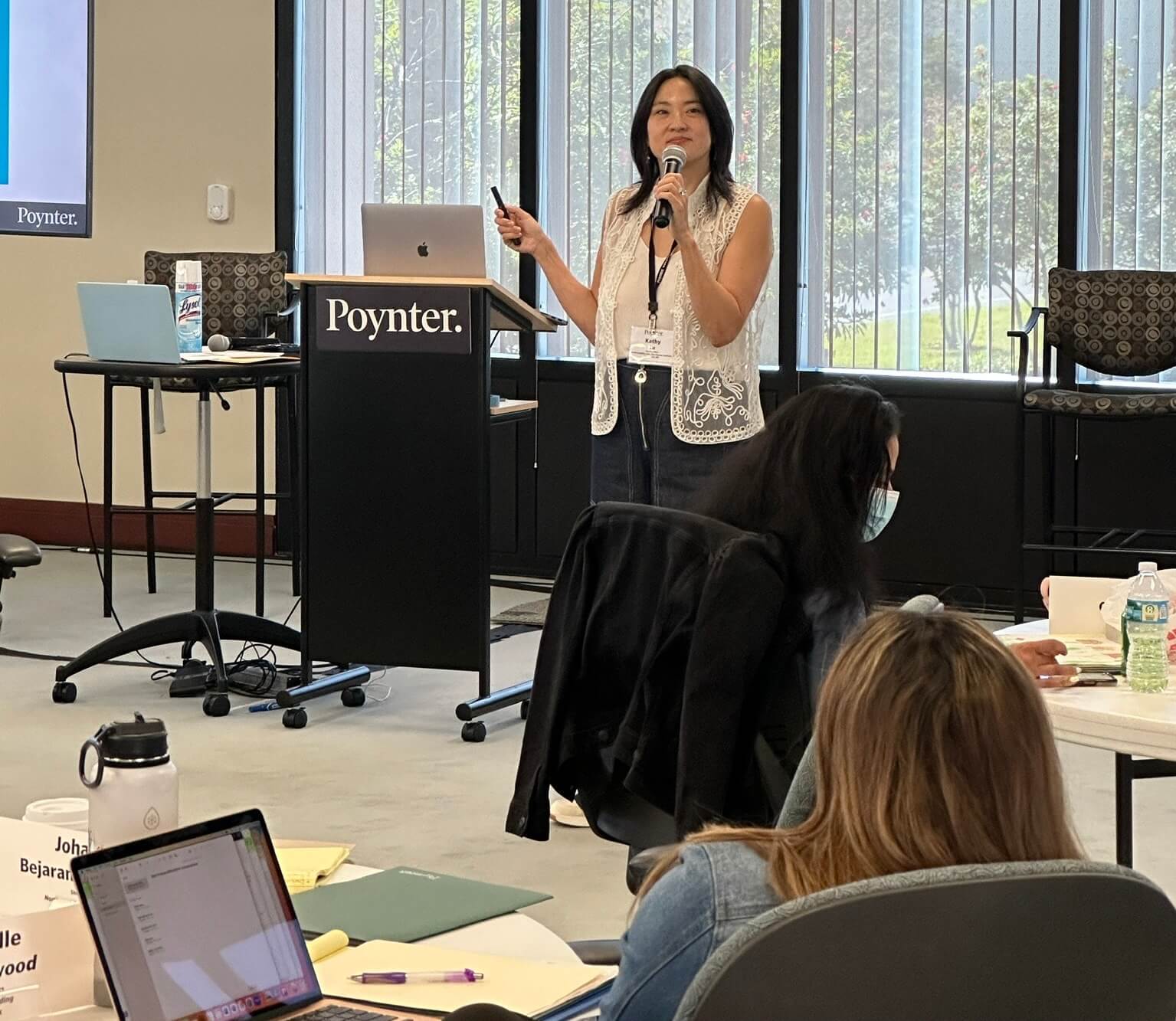There’s an interesting internal conversation going on right now among several of my E-Media Tidbits colleagues about journalism curriculum. (Can we agree that journalism is new media and we don’t need to designate it as such anymore?) These internal conversations take place from time to time and help us to process some of the thoughts we share with you. However, I must say that this has been one of the most vibrant conversations we’ve had in a long time!
One of my esteemed colleagues happened to drop the phrase “Web people” in one of her comments. To be honest, the first thing that came to my mind when I read the term was ducks! But having been a long-time “print person,” then a “Web person,” and now, finally, just a journalist again — because we (print, broadcast, online) all really do need to just get along together.
Why? Because we need to be all those things rolled into one journalist. Or else we won’t just be fighting with each other — we’ll be fighting with ourselves. And for our jobs.
But back to ducks (oops, I mean “Web people”). I think that’s a term “print people” came up with for online journalists years ago, and it still lingers — even festers. “Print people” now understand that they’re ducks, too, and that the “Web people” really weren’t the odd ducks they seemed to be a decade and more ago. In fact, “print people” now understand that ducks can swim. Ducks can survive. Now, everyone wants to be a duck!
I agree with Tidbits colleague Rich Gordon of Northwestern’s Medill School of Journalism that we may be defining terms differently, which was probably a problem in our internal conversation. I interpreted the use of “Web people” as meaning online journalists. Using that definition, it would be totally unfair and wrong to say that “Web people come to newspapers with zero journalism background,” a point that was raised during our conversation.
I know because I hired many “Web people” at USAToday Online when it was a separate entity from the print product — as well as hiring many journalists at several pre-dot.com bust startups. Hired ’em and trained ’em as necessary.
As for online production people having “zero journalism background,” that’s also historically wrong and unfair. Some of the hot type/cold type compositors and old linotype operators in the composing rooms at newspapers I worked were better editors than the journalists who wrote the stories those compositors set into type! That’s a big reason why there may have been fewer mistakes in newspapers back then: Those good people were our unofficial last line of defense.
Similarly, Adrian Holovaty has written that he thinks it’s easier to train an IT or database specialist to be a journalist than it is to train a journalist to be an IT or database specialist. Quack quack for that!
Online journalists must have all the skills of print and broadcast journalists, as well as digital production skills. They need a far more diverse skill set than journalists who work in vertical disciplines. They must have horizontal skill sets that they then practice on an online platform.
So, any hint that an online journalist is less capable or less qualified than a print or broadcast journalist is just plain wrong and unfair. It really ruffles my feathers (do ducks have feathers?)!
As for complaints of poor journalism skills and editing in online news — sure, you do see that. There aren’t enough bodies, so editing suffers. But talk to your friends in the newspaper and broadcast industries, and IF they still have jobs, they’ll tell you the same thing. There’s not enough of them, either.
And it’s a quacking shame.





